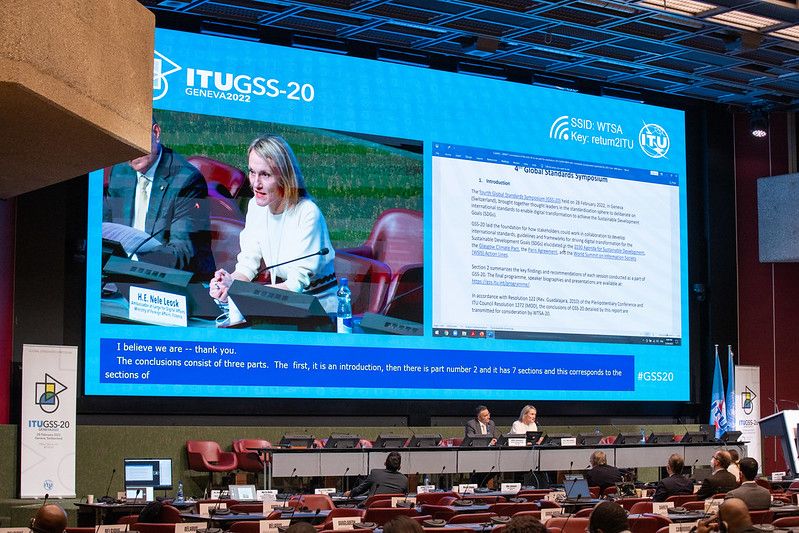
Standardization for digital transformation is a global effort: GSS Chair Nele Leosk
by ITU News
Earlier this week, we interviewed Nele Leosk, Chair of this year’s Global Standards Symposium (GSS) and Ambassador-at-Large for Digital Affairs at the Estonian Ministry of Foreign Affairs.
What are some of the key priorities for governments when it comes to digital transformation?
I believe the most essential is to not forget why we digitalize so that it wouldn’t become an aim in itself; an aim to have new technological advances, new gadgets, applications and so forth without actually knowing why we do it.
We do it because we want to make everybody’s life simpler. We want everybody to have a voice in our world. We want to improve the relationship with all the people living our universe who are also using digital technologies.
I would urge [governments] to see technology simply as a tool to enable to support and enable all the activities that we are doing, and simply do it better.
How can standardization support actions to accelerate digital transformation?
As we have come to realize with the long development of digitalization, digital technologies do not recognize borders. As a result of this, we are dependent on each other.
This also means, of course, apart from providing opportunities for globalization – and Estonia offers a really good example of how a small country can become bigger than it actually is – we also have to be aware of different risks.
And as we see nowadays, the international order of open, free, transparent, and inclusive digitalization is under stress.
To change that, we all need to contribute. By standardizing some of these processes [and] principles, we can make sure we have given all our efforts in making this world more open, sustainable, and also peaceful.
The Global Standards Symposium brings everyone together. Why are these conversations important to everyone?
It is no longer an issue of one government, or one organization, or one region.
It is a global effort – so it has to concern every one of us. Every one of us can play a role in this process.
Read the conclusions of the 4th Global Standards Symposium
